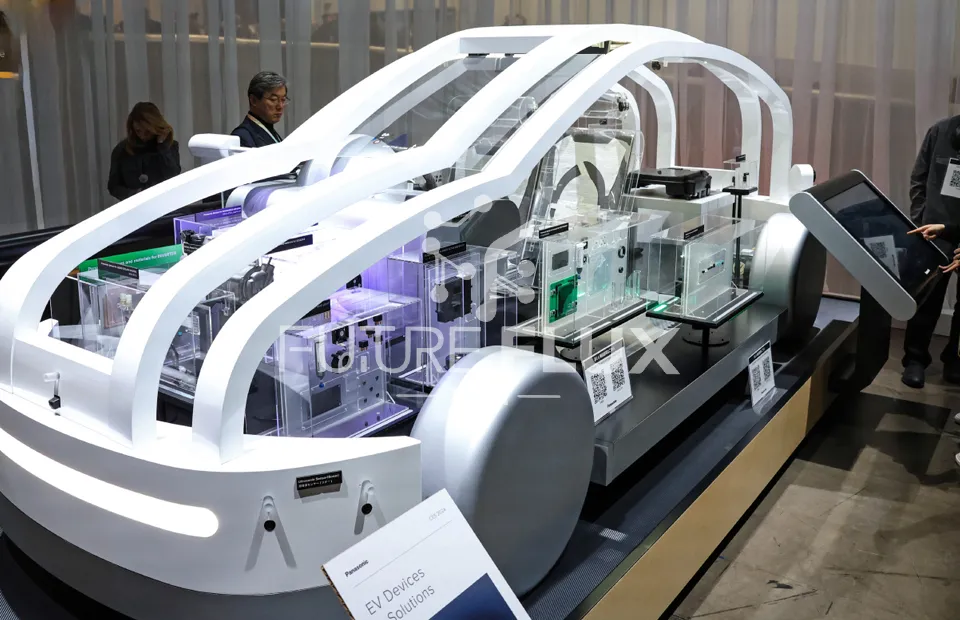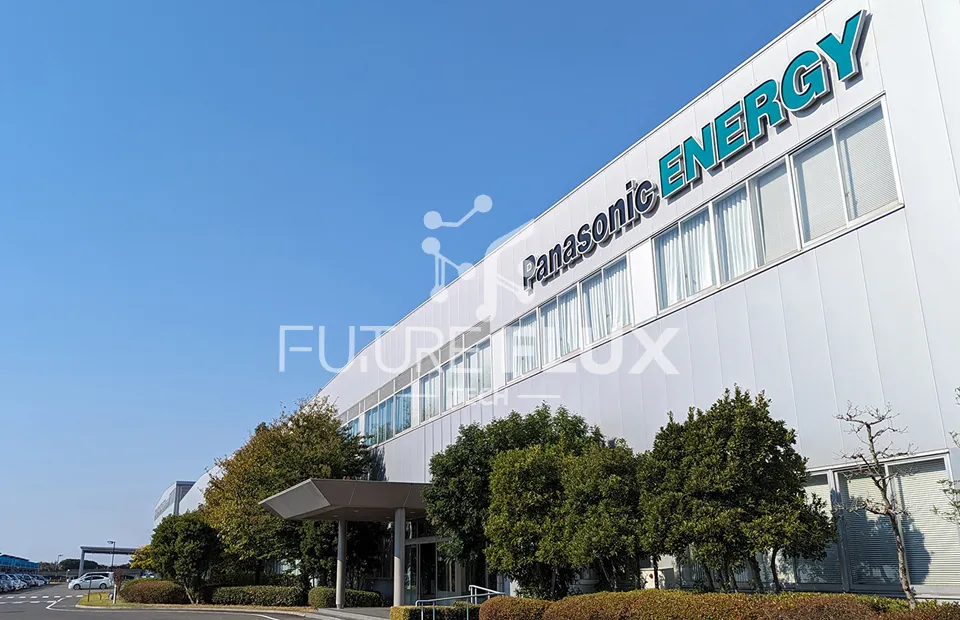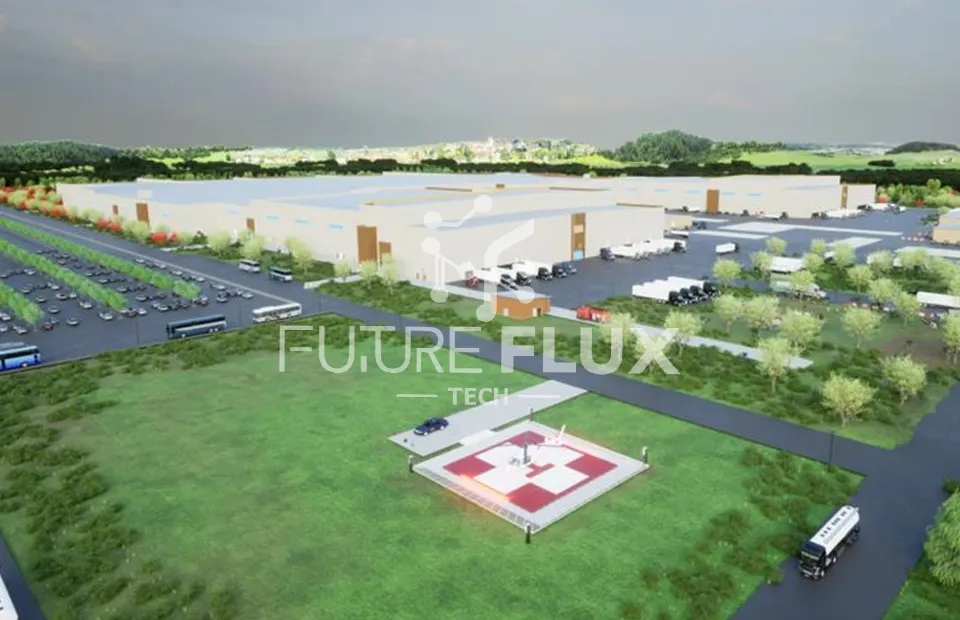Panasonic’s launch of an EV battery factory marks a significant step toward utilizing green technologies in Kansas. This venture could drastically change the face of an established market and spark extensive debates about environmental concerns due to the energy source used.
Promises made by Panasonic in the Production of EV Technology

The Panasonic Electric Vehicle Battery Factory in Kansas is one of the defining achievements of the company that seeks to deliver environmentally friendly transport. The Kansas factory is expected to produce batteries that will charge countless electric vehicles (EVs), making it a crucial development in the EV market.
Economic Impact
Generalization of the EV battery plant in Kansas is likely to result in thousands of employment opportunities, thus improving the economy. As a result, Kansas has become an essential region in the national market and a leader in technological advancements within the EV field.
Environmental Concerns
There is a heated topic on the internet on ethical issues involving Panasonic, including the EV factory and coal plant. People have frowned at the factory’s decision to use coal as its power source, asserting that it goes against the SW of EVs.
Advantages of Panasonic’s Approach
1- Innovation in Battery Technology: To such an extent that Panasonic’s contributions in the battery segment are valuable to the growth of the EV market by providing longer-lasting batteries with better performance.
2- Economic Revitalization: The establishment of the Panasonic Battery Plant in Kansas benefits several local economies in one way, particularly by offering highly technical employment.
3- Enhanced EV Adoption: Thus, contributing to battery production, Panasonic also
contributes to the reduction of price tags on EVs, making them reachable by the public.
Challenges Ahead
The potassium hydroxide used in the EV battery plant in Kansas also poses an environmental issue but, at the same time, a public relations issue. This dilemma involves addressing the country’s urgent need for job creation and overall economic development. It requires aligning shorter-term objectives with more sustainable goals and strategies, focusing on longer-term perspectives. This presents a significant challenge for Panasonic.
Panasonic’s Strategic Decisions
The burning of coal at Panasonic’s EV battery factory, Panasonic EV Factory coal operation, is quite strange to associate with a battery production plant. Nevertheless, it defines the problems related to the shift to renewable energy sources. The decision highlights today’s shortcomings and the need for such infrastructure, which needs urgent attention.
Further Information on Panasonic’s EV Battery Factory in Kansas

Energy Consumption Patterns and Infrastructure
The power demands of the new Panasonic manufacturing plant of EV batteries in Kansas are relatively large, impacting the choice of utility services. At first, these requirements are met by current coal-based plants and are to be kept running until renewable or relatively less carbon-based plans become feasible. He looks closer at the infrastructural development and the energy plan regarding this massive project.
Effects on utilities within the region and energy Medium to Long Term Plans
High energy consumption has caused the factory to delay the shutdown of a coal plant initially intended to reduce carbon emissions. In its decision, this case underlines the tensions between the development of green energy technologies in the future and the efficient use of current energy sources.
Sustainable Energy Strategies
With the increase in the significance of environmental sustainability issues, Kansas’s Panasonic Battery manufacturing company has endeavored to incorporate strategies that enhance environmental sustainability. They are already on the lookout for shifting from coal energy and looking at the possibility of solar, wind, and any other renewable sources for their power. This transformation is the principal to the overall improvement of the production process’s environmental footprint and to conform to the level of sustainable manufacturing standards as practiced in the global market.
Community and Stakeholder Engagement
The Panasonic electric vehicle factory is socially sensitive and always involves the community members to give them a heads up concerning the project. So, from town hall meetings, community feedback sessions, and public reports occasionally, Panasonic’s vision primarily aims to ensure the company has a healthy, democratically built relationship with the community members.
The Economic Ripple Effect

Employment Generation and Training
Construction of the EV battery plant in Kansas is expected to result in the employment of many people, from different technical employees to administrative employees. Panasonic is also setting up training to prepare the local human resources so that they are ready to work within this new area, promoting employee learning.
Boosting Local Businesses
Workers are expected to patronize firms in construction, maintenance, food, and accommodation to meet the plant’s operational requirements when complete. This flow-down impact can create a more robust economy in the long run and create new opportunities for small and medium businesses.
Long-term Impact and Vision
The kind of model we can imagine replicable for future projects is the HSE model, which is elaborated in the following section.
Panasonic battery production in Kansas reflects how similar industries in the future should establish and develop projects, considering economic development and care for nature. The company’s initiatives are being recorded as a model for implementing comparable programs in other areas of industrial production to change standards globally.
Looking to the Future
With the help of unprecedented technology and the increasing possibility of utilizing renewable energy sources, the Panasonic battery plant Kansas coal issue is expected again. Currently, universal energy supplies and sources of one’s choice are only somewhat environmentally friendly, but Panasonic will switch to environmentally friendly sources if these are feasible soon.
Conclusion
The new Panasonic Electric Vehicle Battery Factory in Kansas is one of the critical developments in space. Though there are many economic and technological advantages, this type of energy supply has acute environmental problems because coal is the primary fuel type. Therefore, the future of this venture shall be a pointer to the industry’s future in terms of economic growth and environmentalism management.
FAQs
What kinds of products will be manufactured by the Panasonic EV battery factory?
The factory will be developed to produce lithium-ion batteries, particularly for electric vehicles.
What do people find so wrong with the factory’s use of coal?
Coal is a massive source of carbon, which discredits the clean aspect of electric automobiles.
What effects will the factory’s emergence have on the Kansas economy?
It has been estimated to generate thousands of employment opportunities, thus improving the economic returns of the region while at the same time putting Kansas on the map of the electric vehicle market.
To the last question of the interview, are there any plans in the future for Panasonic to switch to renewable energy resources?
Thus, as renewable energy technologies develop and become cheaper, Panasonic may change objectives to meet the requirements of sustainable development.
I’m Waqas, an electric vehicle enthusiast and tech writer with over 6 years of experience covering the EV industry. I write in-depth articles, comparisons, and reviews to help readers understand the fast-evolving world of electric mobility. From battery technology to EV launches and charging trends, I aim to make complex EV topics simple, engaging, and informative for everyday drivers and curious readers alike.





